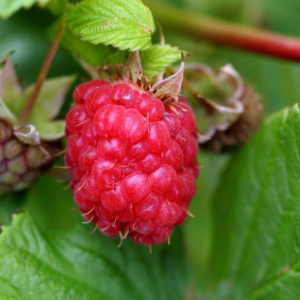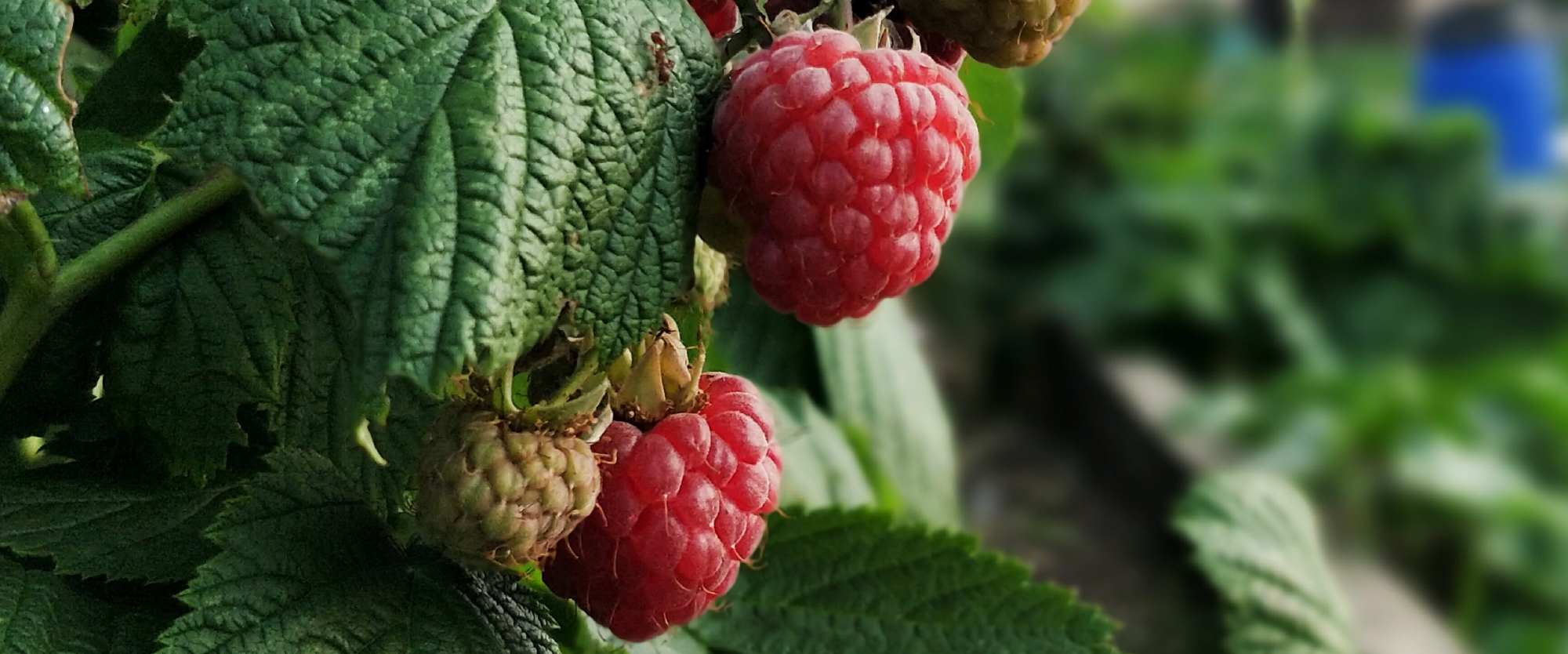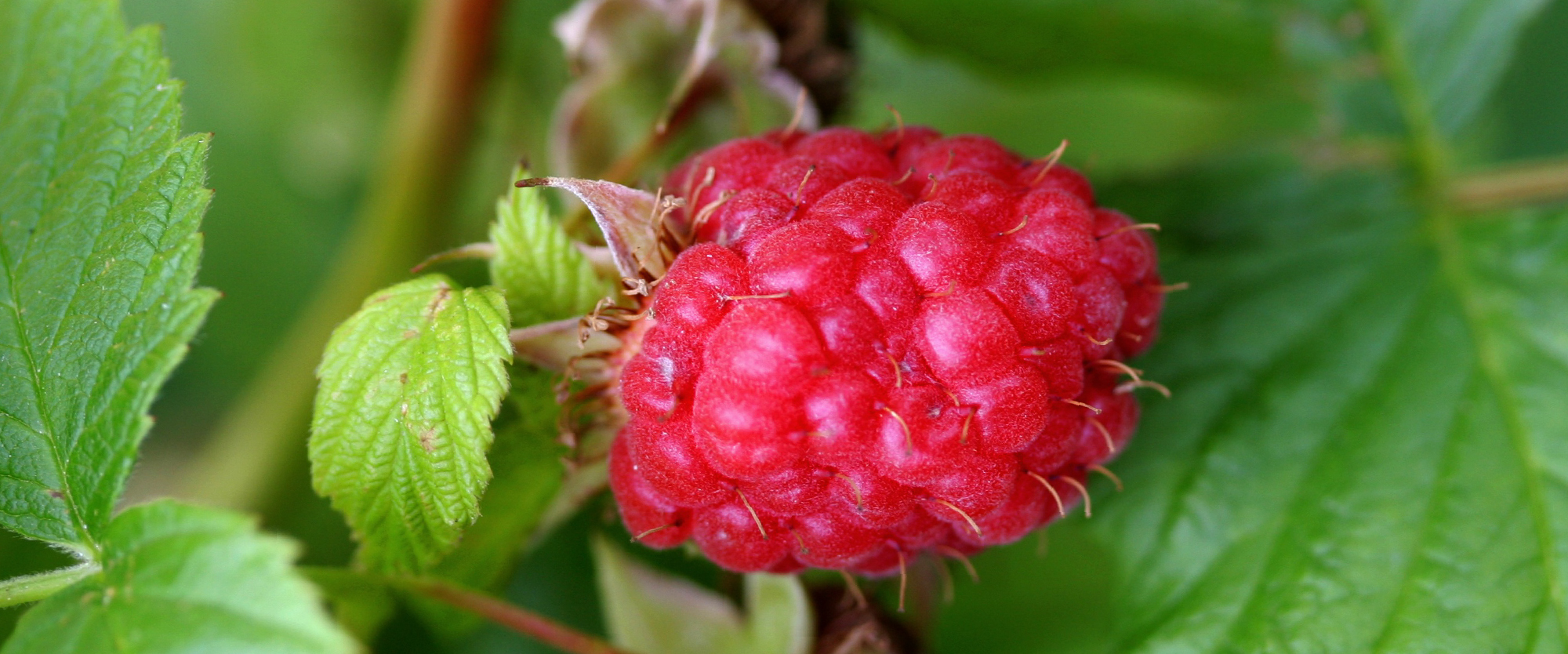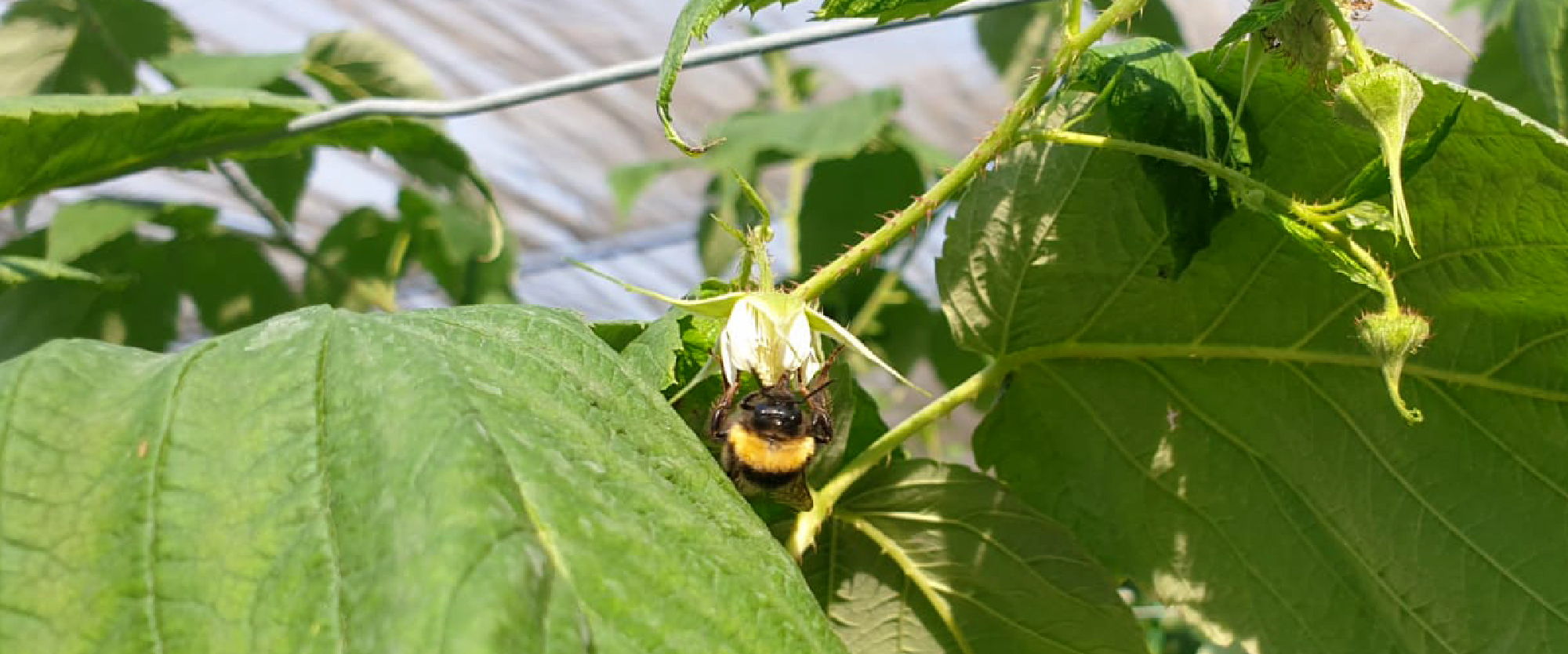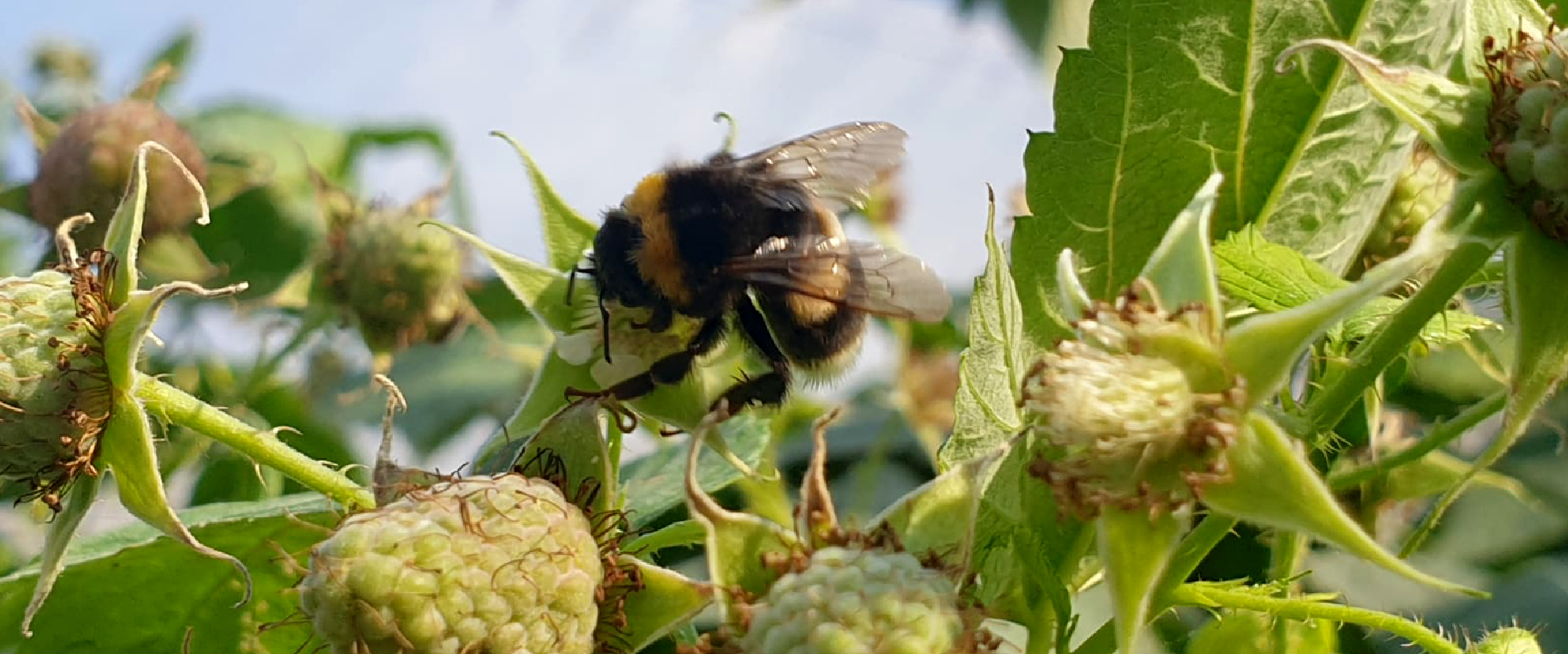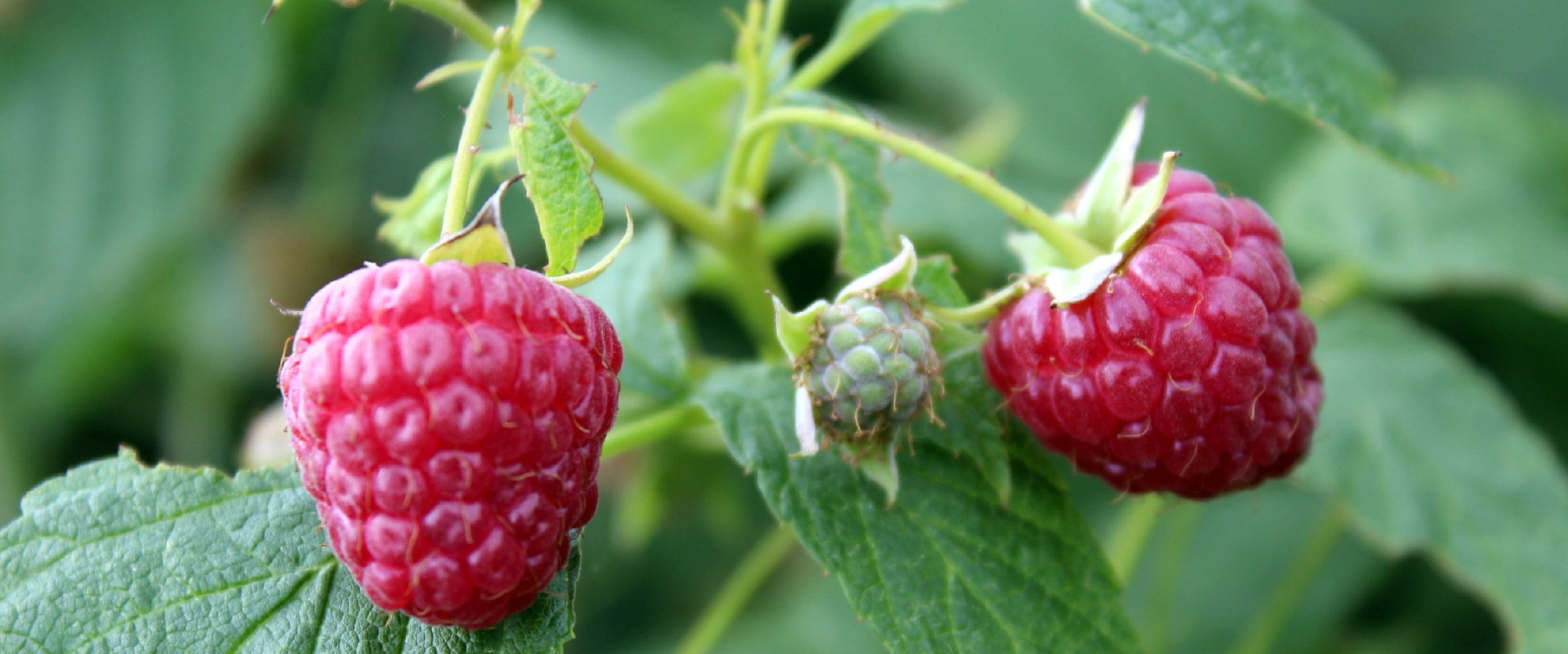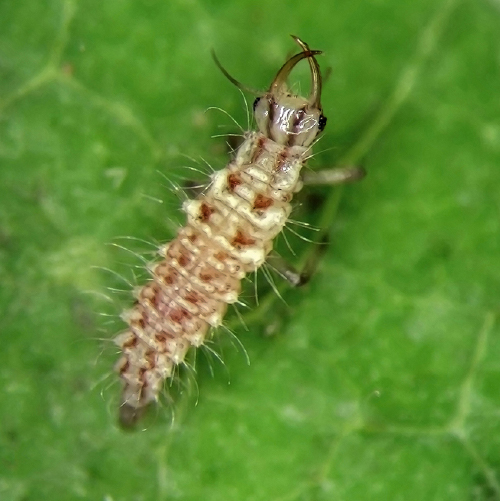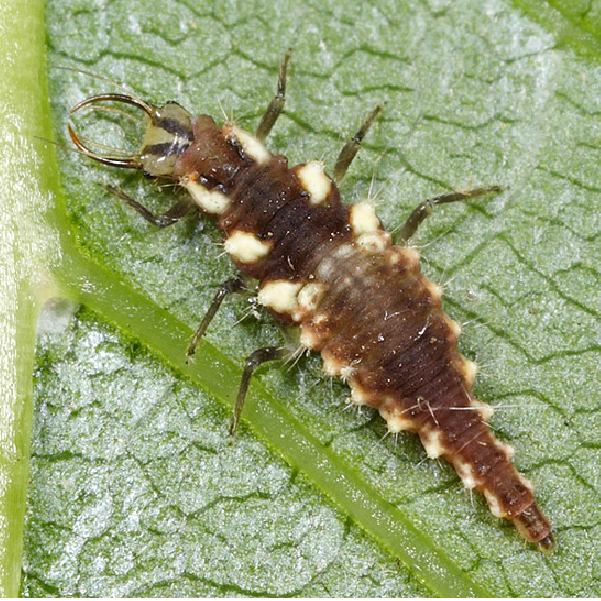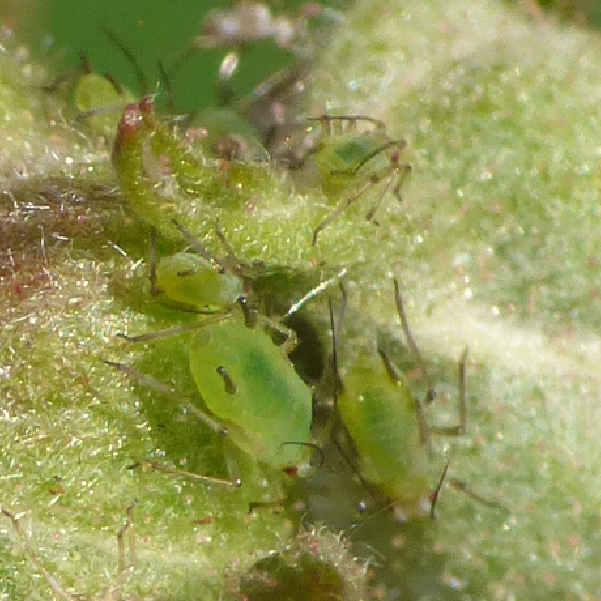The raspberry is the edible fruit of plants species in the genus Rubus subg. Idaeobatus of the rose family. Raspberries shrubs need ample sun and water for optimal development. Raspberries are an important commercial fruit crop, widely grown in all temperate regions of the world.
Pollination
Raspberry flowers are comprised of 100 to 125 pistils, each pistil must be pollinated to create a mature seed and resulting drupe. If all the druplets are not pollinated, the fruit will be misshapen. Although raspberry blooms are self pollinating, they greatly benefit from pollinators such as bees and bumblebees. Yield and quality benefit from pollination and because bumblebees are very large (twice the size of a honey bee) and fuzzier, every visit causes effective pollination.
Pests and diseases
BioBee’s approach to IPM is multifaceted, employing multiple strategies to achieve the optimal result. In addition to the gradual release of host-specific beneficial insects, BioBee recommends that growers use selective “soft” chemical pesticides. This strategy helps growers transition from using “harsh” chemicals, which are dangerous to the human population and the environment and have long-lasting residues. It has also been proven to increase marketable crop yield, and as a result, increases profits.
With BioBee, growers meet the strict legislation in Europe, the U.S., Japan and other countries regarding MRLs (maximum residue levels), as well as GAP (Good Agricultural Practices) requirements, including GLOBALGAP (a voluntary standard required by many supermarket chains in Europe). Produce grown with BioBee requires minimal pesticide use.
BioBee’s staff is extensively trained in the IPM method, and works directly with growers to produce a tailor-made IPM program to meet his or her individual needs. This customized program is successfully implemented with the ongoing oversight and guidance of BioBee’s staff.
